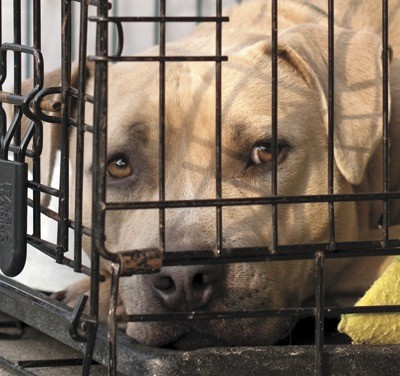This month, we at the Buckley Veterinary Hospital are highlighting the significance of protecting your furry family member by spaying and neutering at an early age. We will be shedding some light on the importance of this surgical procedure as a preventative health measure for your pets. The information in this piece is provided to you in part by Pet Health Network, which is dedicated to the health and well-being of your dogs and cats, and the American Society for the Prevention of Cruelty to Animals.
There are numerous reasons you should spay or neuter your pet! Let’s talk about health reasons first.
Spaying – removing the ovaries and uterus of a female pet – is a veterinary procedure that requires minimal hospitalization and offers lifelong health benefits.
Female dogs that are spayed cannot get uterine cancers, their risk of mammary (breast) cancer is reduced by 25 percent and they are less prone to urinary tract infections. As early as 6 months of age, female dogs begin a biannual “heat” cycle during which they attract every unneutered male dog within 20 miles. She can also have hormonal or personality changes and leak bloody vaginal discharge throughout your house. And no, it’s not true; your dog won’t get fat because you spay her.
Neutering – removing the testicles of your male dog or cat – will vastly improve your pet’s behavior and keep him close to home.
Male dogs that are neutered cannot get testicular cancer and they live 40 percent longer than their unneutered counterparts.
Unneutered male dogs and cats respond to the “call of the wild” and their desire to wander is fierce. In fact, according to IDEXX Laboratories, 62 percent of dogs hit by a car are unneutered. Finally, 66 percent of unneutered males get prostate disease.
Aside from the important medical reasons for spaying or neutering, you are doing the right thing for the serious overpopulation problem in the United States. More than 12 million unwanted dogs and cats are euthanized each year and even more are abandoned.
The cost of your pet’s spay/neuter surgery is a lot less than the cost of having and caring for a litter. It also beats the cost of treatment when your unneutered tomcat escapes and gets into fights with the neighborhood stray.
While we neuter and spay pets of all ages, we recommend scheduling dog and cat spay and neuter procedures at approximately 6 months of age. This allows for all permanent teeth to come and at which point we can assess whether any deciduous (baby) teeth need to be pulled to prevent overcrowding or early dental disease.
At this time we also recommend microchipping while they are under anesthesia, avoiding any possible discomfort from implanting the chip under the skin – similar to how a vaccine is given only with a larger gauge needle.
We perform a presurgical examination and recommend preanesthetic blood panels prior to pets going under anesthetsia. Exams help detect and physical abnormalities such as a hernia, unretained testicles and other issues.
Chemistry tests evaluate kidney, liver and pancreatic function, as well as sugar levels to help identify any underlying conditions that should be addressed before your pet undergoes anesthesia. Other tests that can be run include a complete blood count (CBC) to rule out blood-related conditions, and an electrolyte test to ensure your pet isn’t dehydrated or suffering from an electrolyte imbalance.
If you move or switch veterinarians, make sure your new veterinarian knows your pet’s complete history before any anesthetic event. Vaccine history, lifestyle, and any medications they take all influence how they may respond to anesthesia.
Please contact your veterinarian if you have additional questions; they are the best resource for information about the health and well-being of your furry family member.
The true goal is prevention of illness, pain and suffering; to help you, as a pet owner, provide a longer, healthier and happier life for your best friend.
The Veteran Veterinarian is a column from the Buckley Veterinary Hospital. Send questions, comments, or suggestions for future columns to us at info@buckleyvet.com. Get out there and give your pets plenty of exercise as we head into spring.



